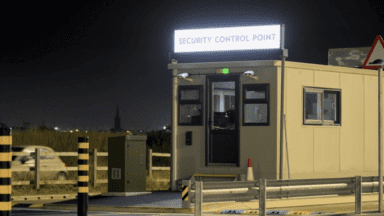
Since April 2024, new import rules require plant and animal products coming into Britain from the EU to be checked at the border. The new Border Target Operating Model (BTOM) set out the new model for the import of Sanitary and Phytosanitary goods, which includes plants and plant products. Previously spot-checked once they reached the destined nurseries, checks of high-risk plants and plant products now take place at special facilities called Border Control Posts (BCPs).
Businesses have been experiencing substantial problems with the new system, where BCPs have been plagued with problems, presenting obstacles to the trade of both edibles, such as fresh fruits and vegetables, and non-edible plants, including cut flowers, planting materials, finished plants, trees, shrubs, bulbs, and seeds. Issues such as rising logistics costs, damaged goods, delays, increased waste, and complex paperwork severely impact the sector’s ability to operate, grow and invest in the future. The problems are not just frustrating, but proving costly and damaging for businesses facing lost stock, hiked costs, delayed supply chains and impacts on customer relationships.
In their latest episode, BBC Countryfile featured the concerns at the new borders checks, highlighting the impact on farmers, food and the industry. Investigative reporter Joe Crowley, not only highlighted the substantial costs of the checks for businesses, but also the problems experienced to date.
Featured in the Countryfile report is the impact of the new Common User Charges (CUC) – the fees charged for border checks, which for small companies has resulted in additional costs of some £50,000 – £60,000 per year. Where delays occur, in addition to the CUCs, business are facing the cost of delays and damage to stock – which will ultimately affect consumers. Damage occurs can occur as a result of (long) delays, but also due to inadequate unloading and reloading of (specialist) stock.
The ongoing problems are such that International lorry drivers don’t want to drive to the UK unless conditions improve. As one of the interviewee’s in the programme pointed out, “We’ve become the country that nobody really wants to supply anymore.” According to the Dutch Transport Association TLN, every single inspection their members attended in the second half of 2024 was delayed – though the Government said that there are no routine delays at the border.
The programme also highlighted severe system shortcomings. Whilst the border checks were designed to stop diseases coming into the country, the checks are not conducted in bio-secure environments, breaking established, tight bio-secure supply chains, which puts the crops of specialist growers and farmers at risk of virus infections. If that were to happen, growers could lose their entire crop.
The programme also highlighted the potential gaps in the system that are already being exploited by criminals. Conducting spot checks only, Dover for example has no border control post, where checks are meant to take place, 22 miles further inland, at Sevington. However, as there are currently no controls between Dover and Sevington, some lorries that should be checked at Sevington, “disappear”. According to Countryfile there is already evidence of criminals taking advantage of the current system, where for example imports such as meat that is banned in the UK, or not properly checked is being brought into the country illegally.
Available on BBC iPlayer, the specific programme item on the border checks is approximately 20:12 minutes into the BBC Countryfile episode .

